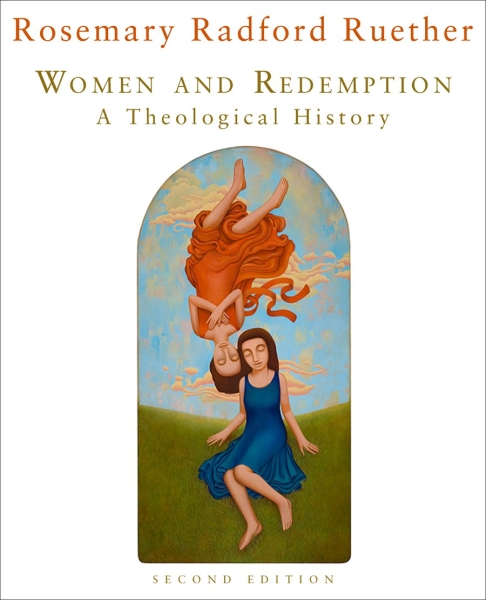Rosemary Radford Ruether's authoritative, award-winning critique of women's unequal standing in the church, which explored the complex history of redemption in evaluating conflict over the fundamental meaning of the Christian gospel for gender relations, is now in an updated and expanded edition. Ruether highlights women theologians' work to challenge the patriarchal paradigm of historical theology and to present redemption linked to the liberation of women. Ruether turns her attention to the situation of women globally and how the growing plurality of women's voices from multicultural and multireligious contexts articulates feminist liberation theology today.
- Publisher Fortress Press
- Format Paperback
- ISBN 9780800698164
- eBook ISBN 9781451417784
- Dimensions 7.5 x 9.25
- Pages 352
- Publication Date August 1, 2011
Samples
Endorsements
"In Women and Redemption: A Theological History, Rosemary Radford Ruether offers a wealth of information; she also models feminist pedagogy by providing questions and bibliography for further research, inviting students and scholars to participate in ongoing theological and historical reconstruction. Additions to the second edition emphasize the central importance of "the plurality of cultural and social contexts" for women's theological reflection, charting the emergence of feminist theology in Western Europe, North America and the Third and Fourth Worlds. Women and Redemption is a tour de force, an essential text for understanding women's theological reflection throughout the centuries of Christianity and around the world."
—Margaret R. Miles
Emerita Professor of Historical Theology
The Graduate Theological Union, Berkeley
"It is ten years since Ruether published this magisterial historical work on Women and Redemption and thirty years since Ruether's theological pen began to influence the theological world. Encountering the new edition the reader is again struck by the scholarly research and historical comprehensiveness, by the injustice of the many contexts that denied full humanity to women, and by the sheer drama of the spirited struggles of many women to be heard in Church and society. We are grateful to Ruether for her sensitivity to readers and students for making this text so accessible; but we stand greatly in her debt for her ability to move discerningly through new cultural, political and theological currents: from liberation theology's intercontinental developments of the last 30 years, Ruether's analysis now moves us to the post–colonial marginalized Fourth World bringing new voices into the conversation. Responding to these oppressed groups and nations challenges rigid boundaries and assumptions, awakening us to the complexities and multidimensional oppressions that must be faced. The redemption story goes on and for this analysis we are indebted to the penetrating insights of Rosemary Ruether.
—Mary Grey
Professor of Philosophy and History
School of Theology, St Mary's University College
—Margaret R. Miles
Emerita Professor of Historical Theology
The Graduate Theological Union, Berkeley
"It is ten years since Ruether published this magisterial historical work on Women and Redemption and thirty years since Ruether's theological pen began to influence the theological world. Encountering the new edition the reader is again struck by the scholarly research and historical comprehensiveness, by the injustice of the many contexts that denied full humanity to women, and by the sheer drama of the spirited struggles of many women to be heard in Church and society. We are grateful to Ruether for her sensitivity to readers and students for making this text so accessible; but we stand greatly in her debt for her ability to move discerningly through new cultural, political and theological currents: from liberation theology's intercontinental developments of the last 30 years, Ruether's analysis now moves us to the post–colonial marginalized Fourth World bringing new voices into the conversation. Responding to these oppressed groups and nations challenges rigid boundaries and assumptions, awakening us to the complexities and multidimensional oppressions that must be faced. The redemption story goes on and for this analysis we are indebted to the penetrating insights of Rosemary Ruether.
—Mary Grey
Professor of Philosophy and History
School of Theology, St Mary's University College
Reviews
Reviewed in Choice
